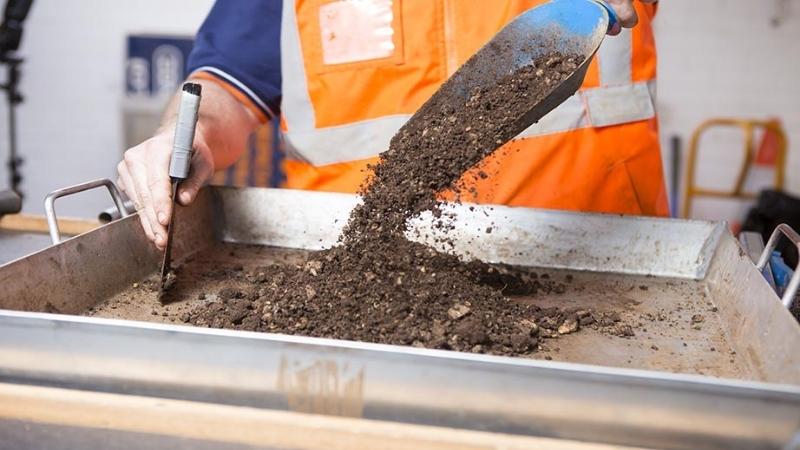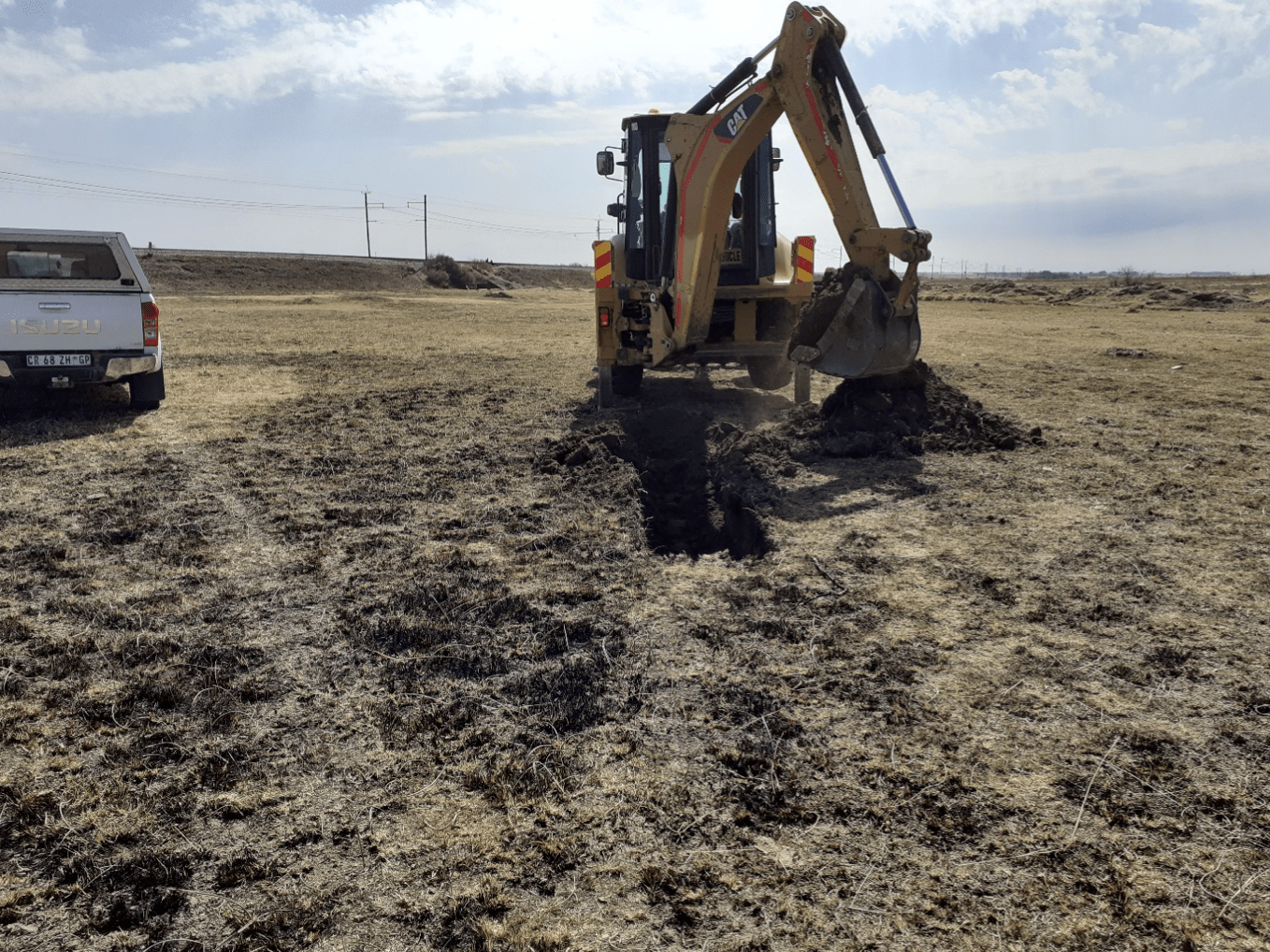Everything You Need to Learn About Geotechnical Engineering for Your Next Job
Everything You Need to Learn About Geotechnical Engineering for Your Next Job
Blog Article
The Value of Geotechnical Engineering in Addressing Environmental Obstacles and Enhancing Construction Safety And Security
Geotechnical engineering serves as a foundation in the crossway of ecological stewardship and building security, supplying crucial insights into the actions of dirt and rock under numerous conditions. By implementing calculated site investigations and customized mitigation measures, geotechnical designers play an important duty in securing both human lives and eco-friendly integrity.

Duty of Geotechnical Engineering
Geotechnical engineering plays a critical role in the layout and construction of facilities by addressing the actions of dirt and rock materials under numerous conditions. This area of engineering is necessary for recognizing the interaction between structures and the ground, which includes identifying the load-bearing capacity of soil, assessing security, and predicting potential settlement or failing.
Geotechnical engineers are in charge of performing site investigations, which entail tasting and testing dirt and rock to gather information on their chemical and physical buildings. This info is important for making structures, keeping walls, and various other earth-retaining structures that make certain security and long life. Moreover, geotechnical engineering notifies the selection of proper construction approaches and materials, therefore reducing threats connected with dirt behavior.
Moreover, the combination of geotechnical design principles right into urban preparation and environmental administration is critical for dealing with obstacles such as ground contamination and groundwater administration. By recognizing geotechnical factors, designers can create sustainable remedies that boost the resilience of facilities versus all-natural hazards, while likewise advertising ecological stewardship. Inevitably, the role of geotechnical engineering is vital for attaining secure, durable, and ecologically mindful building and construction techniques.
Soil Erosion Mitigation
Dirt disintegration presents a considerable danger to both environmental security and infrastructure integrity, impacting roughly 24 billion lots of abundant soil shed each year worldwide. This sensation is aggravated by variables such as logging, urbanization, and inadequate farming techniques. Geotechnical design plays a crucial duty in creating reliable dirt disintegration reduction methods that secure both the setting and building and construction jobs.
One technique involves the application of erosion control methods such as vegetation growing, which maintains dirt through root systems. Additionally, the construction of retaining wall surfaces and balconies can effectively reduce surface area overflow and safeguard susceptible locations from disintegration. Correct drain style is likewise vital; it decreases water buildup and guides excess overflow away from vital structures.
Moreover, geotechnical engineers use dirt stabilization methods, such as the application of geotextiles and naturally degradable mats, to enhance dirt cohesion and prevent destruction - geotechnical companies in south africa. Regular surveillance and evaluation of erosion-prone websites allow timely treatments, guaranteeing lasting sustainability. By integrating these approaches, geotechnical engineering not just reduces the influences of dirt erosion however also adds to the resilience of framework against ecological challenges, eventually fostering a much safer and more sustainable constructed atmosphere
Groundwater Defense Strategies
Groundwater acts as an essential source for drinking water, agriculture, and industrial procedures, making its security necessary for ecological sustainability and public health and wellness. Reliable groundwater protection methods are essential in reducing contamination risks and making certain the longevity of this resource.

Regular surveillance of groundwater high quality is also necessary, allowing very early detection of contamination resources and helping with prompt remediation initiatives. Employing innovative technologies, such as geophysical studies and remote sensing, help in identifying prospective threats to groundwater books.
Furthermore, public education and stakeholder involvement are important, cultivating neighborhood assistance for groundwater protection efforts. about geotechnical engineering. By incorporating regulatory procedures, technical advancements, and neighborhood participation, we can create a detailed structure that safeguards groundwater resources while promoting lasting development and building methods
Landslide Threat Management
Landslides present substantial threats to both human security and framework, making effective risk administration approaches important. Geotechnical engineering plays a vital duty in recognizing, assessing, and mitigating landslide risks. A detailed understanding of incline security, dirt mechanics, and hydrology is important for establishing efficient threat administration plans.
The very first step in landslide threat monitoring entails detailed website examinations, that include geological mapping and soil screening. These investigations help engineers examine the possibility for landslides by recognizing critical factors such as incline angles, dirt make-up, and water material. Using sophisticated technologies such as remote sensing and geophysical surveys can boost the precision of these evaluations.
When risks are identified, appropriate reduction actions can be carried out. These might include engineering solutions such as preserving wall surfaces, drainage systems, and slope stablizing strategies. Keeping track of systems should be established to identify indications of ground movement and changes in water degrees, enabling for proactive treatments.

Enhancing Building And Construction Safety
Construction sites typically provide a myriad of click reference risks that can find this endanger worker safety and project integrity. Geotechnical engineering plays an important duty in boosting building and construction security by supplying crucial understandings right into subsurface problems. With extensive soil and rock analysis, geotechnical designers can recognize prospective dangers, such as soil instability, groundwater concerns, and seismic susceptabilities, which might jeopardize the security of building activities.
Implementing geotechnical options, such as proper structure design and the use of preserving structures, alleviates these risks substantially. These solutions not only make certain the stability of the frameworks being constructed but likewise develop a much safer working setting for construction workers.
In addition, fostering a culture of safety with training and adherence to developed safety protocols even more improves building site security. By integrating geotechnical expertise into the preparation and implementation stages, building and construction tasks can attain greater safety and security criteria, inevitably shielding employees and making sure effective job completion.
Final Thought
In conclusion, geotechnical engineering serves as an important self-control in promoting and taking on environmental obstacles construction safety and security. Via effective dirt erosion mitigation, groundwater defense strategies, and landslide risk management, geotechnical designers contribute to the growth of resilient framework.
Geotechnical engineering offers as a keystone in the crossway of ecological stewardship and construction security, providing important insights into the actions of soil and rock under different problems. Geotechnical engineering notifies the choice of appropriate building approaches and materials, therefore reducing dangers linked with soil habits.
Geotechnical design plays a crucial role in establishing efficient dirt disintegration reduction strategies that protect both the atmosphere and building and construction projects.
Furthermore, geotechnical engineers utilize dirt stablizing strategies, such as the application of geotextiles and biodegradable mats, to improve soil cohesion and stop destruction. Via comprehensive soil and rock analysis, geotechnical engineers can identify potential dangers, such as soil instability, groundwater problems, and seismic susceptabilities, which might jeopardize the safety and security of construction tasks.
Report this page